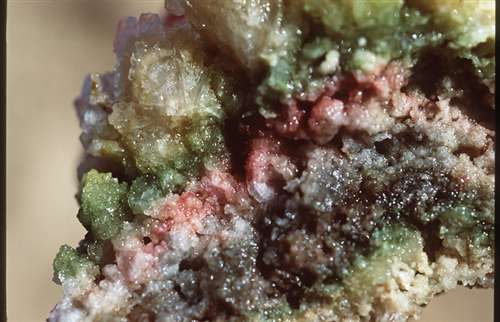-
Seminar Detail

Life in the Universe: The Expanding World of Microbial Diversity
Presenter: Norman Pace
September 24, 2007 11:00 AM Pacific
Life anywhere in the universe is likely to be based on carbon and to have a basic biochemistry similar to our own. The fundamental demands of life anywhere thus are the same: to capture energy in order to transform organic chemistry into more of self. In order to accomplish these tasks and thrive, terrestrial life has penetrated all permissible thermodynamic and physical niches offered by planet Earth. Consequently, it is likely that terrestrial life offers models for life in almost any habitable niche in the Universe. Knowledge of terrestrial diversity thus informs us about possible life anywhere.
Just how diverse is Earth’s life? The fact is, we don’t know because the most diverse of Earth’s life is microbial and our understanding of microbial diversity is rudimentary. Historically, progress in microbiology has been impeded by a general requirement for culture of organisms in order to detect and identify them. Since most microorganisms in nature are not cultured readily or at all, the makeup of natural microbial diversity, much or most of terrestrial biodiversity, has been inaccessible. In the past two decades, increasing powerful molecular technologies have been used for culture independent surveys of natural microbial diversity, with DNA sequences and phylogenetic trees as metaphors for “diversity.” Studies of many environments, including some of the most seemingly inhospitable, have dramatically expanded the known extent of microbial phylogenetic diversity. The results also show that we are barely scratching the surface of an enormous unknown, the intertwined activities of a microbial world that established and maintains our biosphere.
About the speaker:
Professor Norman Pace has published nearly 200 research articles in journals such as Science, Nature and the Proceedings of the National Academy of Sciences. He is a fellow of the American Association for the Advancement of Science, the American Academy of Arts and Sciences, and the American Academy of Microbiology, and a member of the National Academy of Sciences. In 2001, he received a MacArthur Fellowship and the Selman A. Waksman Award in Microbiology by the National Academy of Sciences, considered the nation's highest award in microbiology. In 2007, he received the American Society for Microbiology's 2007 Abbott-ASM Lifetime Achievement Award for outstanding contributions to the field of microbial ecology.Participation Instructions
With a Polycom....RSVP to Marco Boldt (Marco.Boldt@nasa.gov) and connect to WebEx as instructed below. If you need Polycom help during the live event, notify Marco Boldt using the chat function in WebEx.
The slides from the seminar can be accessed real-time using WebEx at:
https://nasa.webex.com
Enter the meeting number: 926 758 107 Hit the "join now" button.
Enter your name or site name (this is not an assigned log-in name, please use your institution name or your first and last name), email and the password: pace123* (case sensitive)
If you've never joined a WebEx meeting before, please allow an extra 5-10 minutes to install the plug-in.
Without a Polycom...There are two ways to participate:
1) You can listen to the seminar on the telephone while viewing the slides in WebEx (see WebEx instructions above). The NASA conference phone number will be displayed when joining the WebEx meeting.
2) You can watch the Realplayer webcast at: http://vanseg-1.arc.nasa.gov/2007/AB070924-01.ram and view the slides in WebEx (see WebEx instructions above) There is a 30 second delay for the webcast, so you will need to control the slides manually using the arrow buttons in WebEx. Questions for the speaker can be posted in the WebEx chat area to be answered at the end of the talk. Do not try to watch the Realplayer webcast at the same time as the Polycom or the phone. Due to the delay in the webcast, it will sound awful, unless you like dissonance.December 21, 2007
